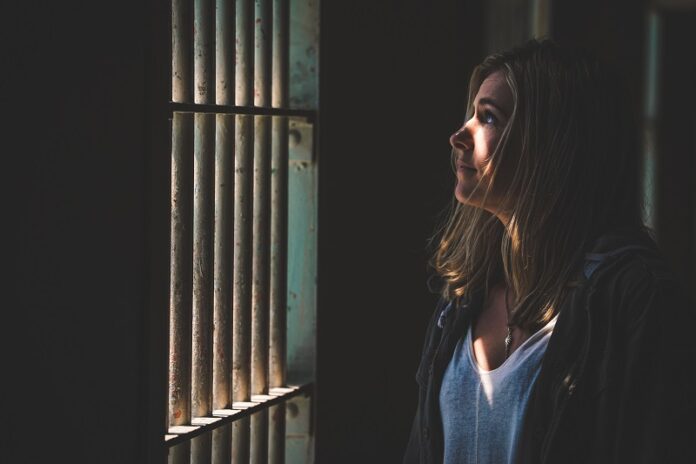
Melonie Jenkins was thrust into the spotlight in 2013 when her brother Nikko Jenkins was convicted of committing four brutal murders in Omaha, Nebraska. Born into a family plagued by criminal activity, Melonie struggled to avoid the pitfalls of the justice system herself. This article explores her tumultuous upbringing, troubles with the law, efforts to change, current life today, and the broader significance of her story.
Introduction to Melonie Jenkins
Melonie Jenkins was born on February 14, 1988 in Omaha, Nebraska to parents David A. Magee and Lori Jenkins. Her brother Nikko Jenkins gained notoriety in 2013 after murdering four people in just 10 days in Omaha and getting sentenced to death. Melonie came from a troubled family where run-ins with the law were commonplace. Despite these challenges, she has tried to turn her own life around and build something positive outside of crime.
Early Life and Family of Melonie Jenkins
Melonie and her siblings grew up in an unstable environment plagued by substance abuse and criminal behavior. Their mother Lori was an alcoholic and drug addict who struggled to care for her seven children. She had her first child at age 15 and was frequently in jail. Melonie’s father David was absent from the home and also had a criminal history, including armed robbery convictions.
With their parents unable or unwilling to properly care for the children, Melonie and her siblings would often stay with extended family members. Their grandmother Alice Jenkins and Aunt Alice Starr both had multiple felony convictions. Melonie’s uncle John was a drug dealer who was murdered when she was just 13 years old.
Surrounded by family members who constantly engaged in illegal activities and served jail time, Melonie had little exposure to what a healthy, law-abiding life looked like. She and her siblings were left to navigate unstable living situations largely on their own.
Troubles With the Law
Likely influenced by the behavior she witnessed growing up, Melonie began getting into trouble with the law herself as a juvenile. At just 10 years old she was caught shoplifting and put on probation. Over the next decade, she racked up multiple convictions including assault, robbery, and gun charges.
As a teenager, Melonie was convicted of robbery after she and a friend mugged several younger girls. Her felony robbery charge resulted in a placement at the Youth Rehabilitation and Treatment Center in Geneva, Nebraska when she was 17. This was the first time Melonie was removed from her family environment and given an opportunity for rehabilitation.
Unfortunately, it seemed the 18-month sentence was not long enough to override the criminal influences Melonie had been surrounded by her whole life. In 2008 shortly after turning 20, she was convicted of felony gun possession. She was released from jail in 2009, but this would not be her last run-in with the law.
In 2011, Melonie was convicted of misdemeanor assault and disturbing the peace after getting into a fight with a female roommate while trying to turn her life around. Then in 2013, the same month her brother Nikko went on his killing spree, Melonie was charged with felony assault after attacking a young woman. Her downward spiral into crime had continued to escalate despite interventions and jail time.
Efforts to Change
After her release from jail at age 21, Melonie started making some efforts to turn her life around. She moved in with her grandmother Alice Starr, who despite her own criminal history tried to provide Melonie with guidance and stability.
Melonie obtained her GED and started taking some college classes with the goal of pursuing a nursing degree. For a period she managed to avoid the pull of her family’s criminal lifestyle and build a small social network outside of it. She found a boyfriend who did not have a criminal record.
However, Melonie struggled to maintain this positive momentum. In 2011 she was convicted of misdemeanor assault and disturbing the peace after getting in a fight with a female roommate. In 2013, the same month her brother Nikko went on his killing spree, Melonie was charged with felony assault after attacking a young woman.
Her setbacks stemmed from her long history of addiction, a volatile tendency toward violence, and lack of external support. Her brother Nikko’s crimes also negatively impacted her stability and progress.
Melonie Jenkins’s Current Life Today
Now in her mid-30s, Melonie is living with her grandmother Alice Starr, and her two children. She continues to deal with the ripple effects of her family’s troubled history. Her brother Nikko is appealing his death sentence, keeping him in the headlines.
Melonie herself still struggles with alcohol addiction and surviving on a modest disability income. In recent years she has had run-ins with the law for minor offenses like drunk driving. She also occasionally uses her family’s notoriety to speak about her troubled upbringing.
While Melonie has not managed to fully turn her own life around, she provides an example of the barriers ex-convicts face returning to society. She represents the difficult cycle that can trap generations of a family in repeated criminal behavior. Her efforts and setbacks highlight the type of support needed to truly rehabilitate criminally exposed youth.
Impact and Significance
Melonie Jenkins’ life story provides a lens into systemic criminal justice issues in America. It highlights how an unstable family environment lacking positive role models fuels youth delinquency. Without proper community resources and rehabilitation, juvenile offenses too often turn into lasting criminal records.
Melonie’s marginal progress shows the inadequate support most former convicts receive. Though she sought further education and employment, her addictions and volatile history overwhelmed her progress. Constant setbacks made it nearly impossible for her to build a stable life.
Though she sought out alternatives, the criminal influences in Melonie’s life remained too pervasive to make a clean break. Her story reveals how tough it can be to overcome a tumultuous upbringing. But with the right guidance and support networks, even those from the most troubled backgrounds have the potential to change.
Overall, Melonie’s journey underscores gaps in the criminal justice system for rehabilitating young offenders and helping ex-convicts start over. It provides insights into how generational crime, poverty, and addiction form a vicious cycle few can break from alone.
Conclusion to Melonie Jenkins
Melonie Jenkins’ difficult early life led her down a lamentable path of criminal behavior and incarceration. Despite striving for reform at times, she has so far been unable to fully escape the destructive patterns of her family. Nevertheless, her story provides insights into circumstantial pathways toward delinquency. With intensive interventions and support, people from all backgrounds have the capacity to positively contribute to society. Melonie still has the opportunity to play a valuable role, especially as a mentor for at-risk youth. But it will require determination and utilizing available resources. Melonie Jenkins’ life is a testament to both the trauma of generational crime and the potential for redemption.
Also Read: SHOCKING HIDDEN TRUTHS IN THE MINDBLOWN MADKNOWS PHENOMENON
FAQS about Melonie Jenkins
Q: Who is Melonie Jenkins?
Melonie Jenkins is the sister of convicted spree killer Nikko Jenkins. She was born in 1988 in Omaha, Nebraska, and grew up in a family plagued by generational crime and substance abuse.
Q: What was Melonie Jenkins’ childhood like?
Melonie had an unstable childhood surrounded by family members involved in criminal activity. Her mother was a teen alcoholic and drug addict who was frequently incarcerated. Her father was absent and also had a criminal past. She was shuffled between relatives and foster homes without positive role models.
Q: What crimes was Melonie Jenkins convicted of?
As a juvenile, Melonie was convicted of shoplifting, robbery, assault, and gun charges. In her 20s she was convicted multiple times of assault and gun possession. She struggled to avoid the criminal influences of her family.
Q: How did Melonie try to turn her life around?
After being released from jail in her early 20s, Melonie moved in with her grandmother, earned her GED, took some college classes, and found a boyfriend without a criminal background. However, she struggled to maintain this progress.
Q: Why was it difficult for Melonie to change her life?
Melonie faced many obstacles including addiction issues, lack of external support, and the volatility of her family environment. Her brother’s high profile murders also negatively impacted her. She was unable to overcome her tumultuous upbringing.
Q: What is Melonie Jenkins’ life like today?
Now in her 30s, Melonie lives with her grandmother and two children. She still struggles with alcoholism and minor legal offenses. She survives on disability income but occasionally speaks out about her past.
Q: What are the key insights from Melonie Jenkins’ story?
Her story reveals the cycle of generational crime, the shortcomings of rehabilitation programs, the importance of support systems for ex-convicts, and how tough it can be to overcome a troubled background. It underscores gaps in the justice system.
Q: What is the future outlook for Melonie Jenkins?
Melonie still has an opportunity to turn her life around and serve as a mentor, but it will require tapping into resources and determination. Her story represents both the trauma of her upbringing and the potential for overcoming it.











